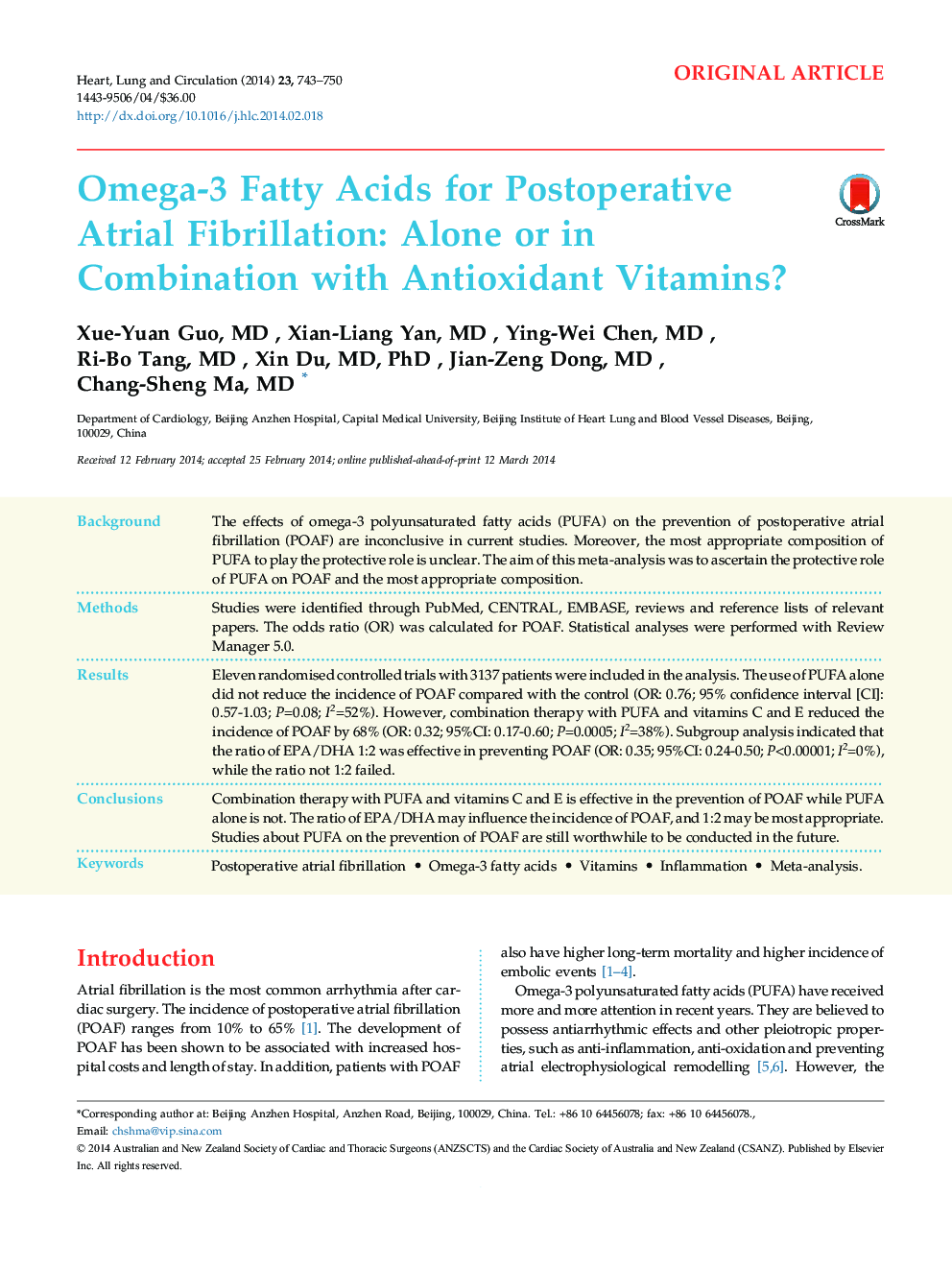| Article ID | Journal | Published Year | Pages | File Type |
|---|---|---|---|---|
| 2917745 | Heart, Lung and Circulation | 2014 | 8 Pages |
BackgroundThe effects of omega-3 polyunsaturated fatty acids (PUFA) on the prevention of postoperative atrial fibrillation (POAF) are inconclusive in current studies. Moreover, the most appropriate composition of PUFA to play the protective role is unclear. The aim of this meta-analysis was to ascertain the protective role of PUFA on POAF and the most appropriate composition.MethodsStudies were identified through PubMed, CENTRAL, EMBASE, reviews and reference lists of relevant papers. The odds ratio (OR) was calculated for POAF. Statistical analyses were performed with Review Manager 5.0.ResultsEleven randomised controlled trials with 3137 patients were included in the analysis. The use of PUFA alone did not reduce the incidence of POAF compared with the control (OR: 0.76; 95% confidence interval [CI]: 0.57-1.03; P=0.08; I2=52%). However, combination therapy with PUFA and vitamins C and E reduced the incidence of POAF by 68% (OR: 0.32; 95%CI: 0.17-0.60; P=0.0005; I2=38%). Subgroup analysis indicated that the ratio of EPA/DHA 1:2 was effective in preventing POAF (OR: 0.35; 95%CI: 0.24-0.50; P<0.00001; I2=0%), while the ratio not 1:2 failed.ConclusionsCombination therapy with PUFA and vitamins C and E is effective in the prevention of POAF while PUFA alone is not. The ratio of EPA/DHA may influence the incidence of POAF, and 1:2 may be most appropriate. Studies about PUFA on the prevention of POAF are still worthwhile to be conducted in the future.
